Chinese medical team in Africa delivers benefits to locals
Editor's Note:
In 1963, China established its first medical aid team abroad, starting the nation's 60-year journey of providing medical services to under-developed regions. Over the past 60 years, over 30,000 Chinese medical staff were sent to 76 countries and regions worldwide. Today, there are still Chinese medical teams working in 115 medical service stations in 56 countries, most of which are in the most remote areas.
The medical team after their arrival in Bangui. Photo provided to Tianmu News.
Wang Jia, a doctor from the radiology department of Jiaxing First Hospital, East China’s Zhejiang Province, welcomes her second year of medical aid mission in the Central African Republic.
She arrived in Bangui, the capital of the Central African Republic on June 13 2022, as a member of the 19th Chinese medical team sent to the country. Wang and another 10 team members will provide medical services to local residents for 18 months.
Adaption to a new environment
Though have received training and preparation for what they would face, Wang and her colleagues have encountered a number of incidents when working in Central Africa.
"Our work starts at 8 am and goes almost non-stop. Every time when I finish checking on the patients, I'm drenched in sweat," Wang wrote in her diary.
Doctors need to wear protective gear including suits and masks under a temperature of nearly 40 degrees. The weather there is humid and hot, so the mask will easily fog up.
"If you sweat too much, you become dehydrated. To keep your body hydrated, you need to drink a lot of water, "said Hao Yabo, Wang's teammate.
Wang Jia is at work. Photo provided to Tianmu News.
Before starting her daily work, Wang has to disinfect the ultrasound machine, probe and operating table.
"In fact, the disinfection work is relatively handy, but the maintenance is much more difficult because it is not my speciality," Wang said.
"My colleagues in China will help me with cases in time when I encounter incurable diseases even if there is a seven-hour time difference, there is always someone back home to help," Wang said.
Legacies behind
"A middle-aged male patient once came to the medical clinic for treatment with low back pain and unsteady walking (on crutches). He had a CT scan of the lumbar spine at other hospitals which revealed osteoporosis and lumbar/sacral spondylolisthesis," Wang mentioned one of her patients who had left a deep impression.
Based on years of experience, Wang asserted the patient's symptoms were not caused by spondylolisthesis. On being asked about his medical history and examined thoroughly, the patient was finally diagnosed with myelitis.
"Considering his family situation, we reduced part of his medical fee. He was touched and kept saying 'merci' to express his gratitude," Wang said.
After a month of treatment, the patient was significantly improved as he could walk normally.
"He had tears in his eyes and thanked us repeatedly," Wang said.
Wang Jia is at work. Photo provided to Tianmu News.
Bangui locates near the equator. Strong ultraviolet rays and high temperatures result in eye problems, with many people in their early 40s suffering from cataracts.
Teaching one to fish is better than giving him fish directly. Wang and all other doctors believe. Chinese doctors' rich experience is a precious treasure for local hospitals and doctors.
Zhang Youmei, an ophthalmologist at Jiaxing Hospital of Traditional Chinese Medicine, is teaching local doctor Paul techniques of eye surgery.
Now Paul has stepped forward from a shaky hand to be able to lead some simple operations.
"I get along well with local doctors. When I cooperate and communicate with them, I share current mainstream technologies and concepts with them," Wang said.
Patients line up at the gate of the Traditional Chinese Medicine Department in the morning. Photo provided to Tianmu News.
And as of Feb 10, Wang and her teammates had completed 16,675 outpatient and emergency visits and 476 operations. Each visit and operation was accompanied by "Bonjour, Ça va?" "Merci" "Thank you" and even the Chinese language "Ni Hao (hello)" and "Xie Xie (thank you)" which the patients had learned especially.
On New Year's Day this year, a resident sent the medical team fried peanuts in a beer bottle, skin peeled off, to show gratitude.
“未经许可,请勿转载”

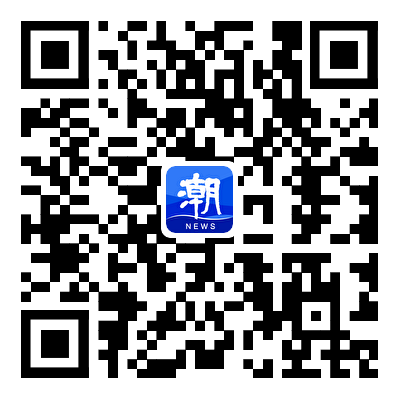 扫描二维码
扫描二维码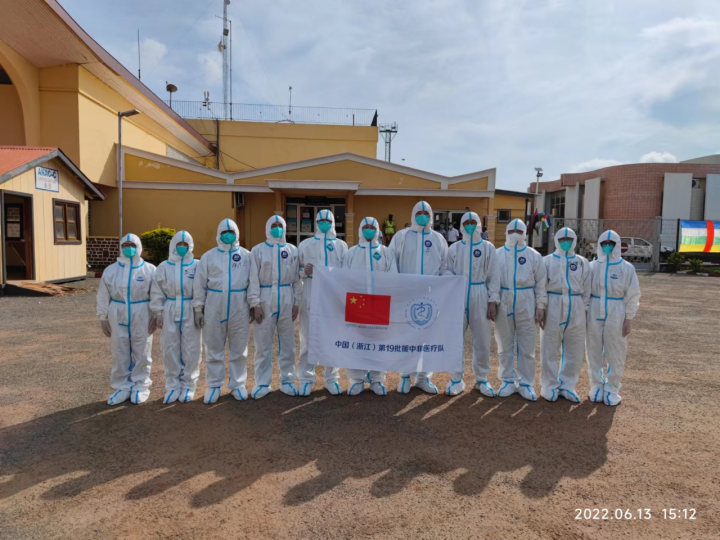
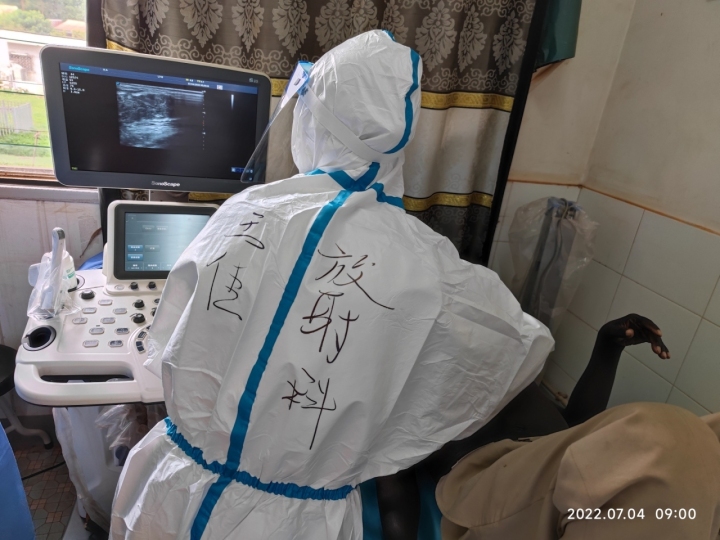
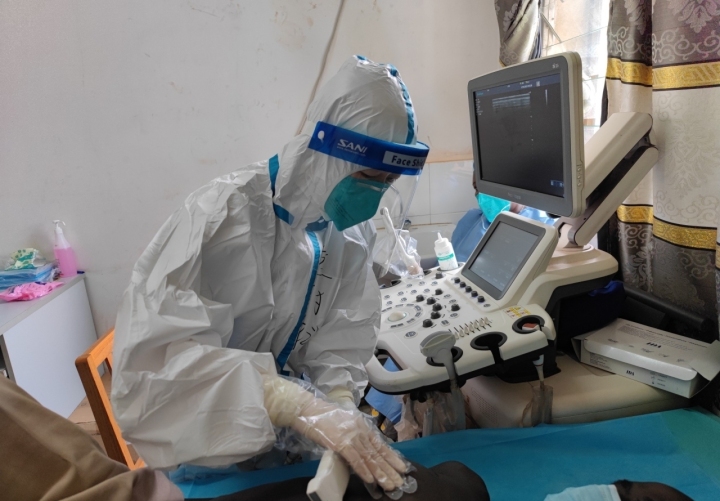
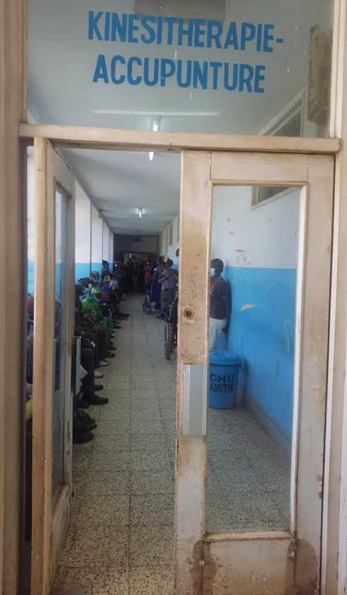




 浙公网安备 33010502007539号
浙公网安备 33010502007539号